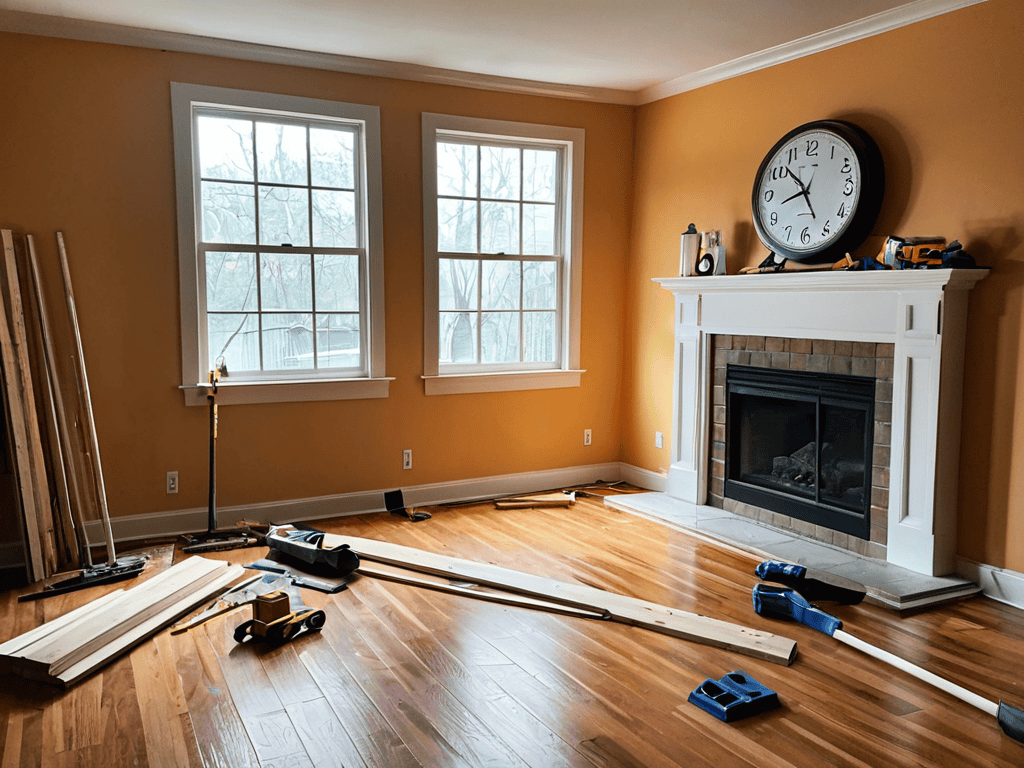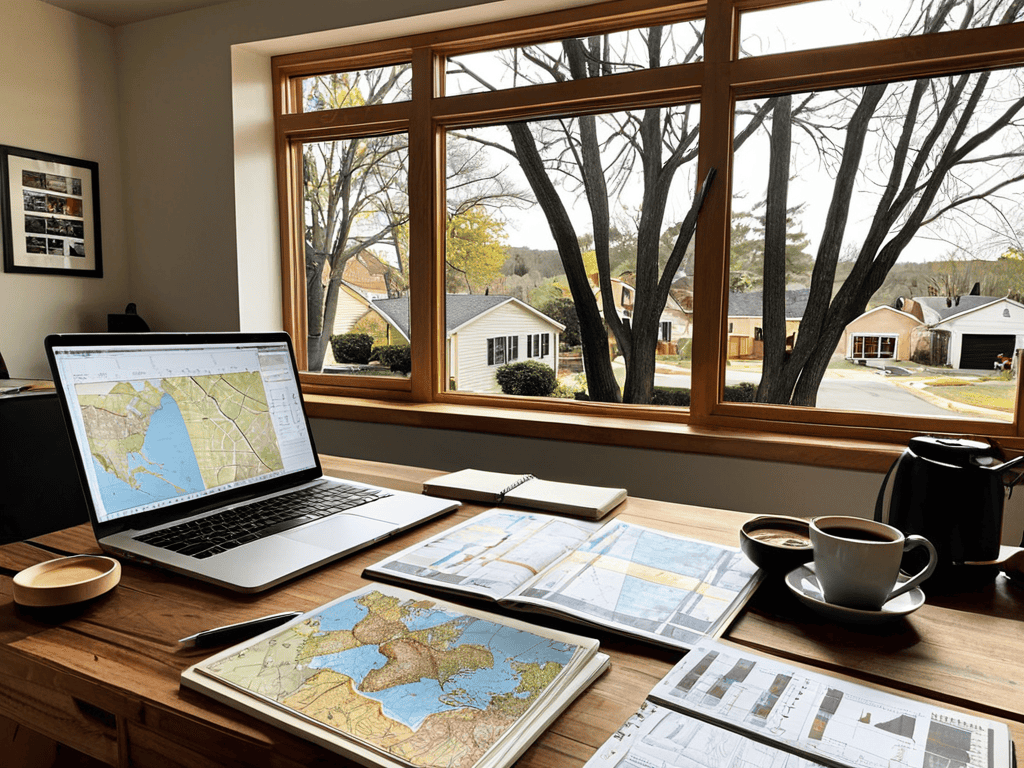I still remember the day I flipped my first house, and the rush of adrenaline that came with it. The idea of transforming a rundown property into a stunning home, and making a profit in the process, was exhilarating. But, as I delved deeper into the world of real estate flipping, I realized that there were many misconceptions surrounding it. One of the most common myths is that you need a lot of money to get started, which is simply not true. With the right real estate flipping tips and a bit of creativity, anyone can start flipping houses and turning a profit.
In this article, I’ll share my personal story and provide you with honest and practical advice on how to get started with real estate flipping. You’ll learn how to identify profitable properties, negotiate with sellers, and manage renovations like a pro. My goal is to give you the no-hype, real-world guidance you need to succeed in this exciting and potentially lucrative field. By the end of this article, you’ll be equipped with the knowledge and confidence to start your own real estate flipping journey and turn houses into goldmines.
Table of Contents
Guide Overview: What You'll Need

Total Time: several weeks to several months
Estimated Cost: $10,000 – $50,000 or more
Difficulty Level: Hard
Tools Required
- Hammer (for demolition and construction)
- Tape Measure (for accurate measurements)
- Level (to ensure surfaces are even)
- Pliers (for gripping and bending objects)
- Drill (with various drill bits)
- Saw (e.g., circular saw or hand saw)
Supplies & Materials
- 2-in x 4-in lumber (for framing)
- Drywall (for walls and ceilings)
- Flooring materials (e.g., hardwood, tile, or carpet)
- Paint (for interior and exterior)
- Roofing materials (e.g., shingles or tiles)
- Plumbing fixtures (e.g., sinks, toilets, or faucets)
- Electrical fixtures (e.g., lighting or outlets)
Step-by-Step Instructions
- 1. First, get familiar with the local market, understand the current trends, and identify the areas with the most potential for flipping. This means researching the local real estate market, talking to agents, and analyzing data on recent sales to determine which neighborhoods are up and coming.
- 2. Next, secure your financing, whether it’s through a lender, investor, or your own funds. You’ll need to have a clear understanding of your budget and how much you can afford to invest in a property, including purchase price, renovation costs, and carrying costs.
- 3. Now, find the right property, which typically means looking for homes that are distressed or undervalued. This could be due to the property needing repairs, being in a less desirable location, or simply being overpriced. Work with a real estate agent who has experience in finding these types of properties.
- 4. Once you’ve found a potential property, conduct a thorough inspection to identify any necessary repairs or renovations. This step is crucial in determining your potential profit margins, as it will give you a clear picture of what you’re getting into and help you make an informed offer.
- 5. With your inspection in hand, negotiate the purchase price, taking into account the cost of repairs and renovations. This is where having a solid understanding of the local market and being able to make a strong case for your offer can really pay off, potentially saving you thousands of dollars and increasing your return on investment.
- 6. After purchasing the property, develop a renovation plan, including a timeline, budget, and scope of work. This plan should outline everything from major renovations like kitchen and bathroom remodels to smaller cosmetic updates like painting and flooring.
- 7. As you begin renovations, stay organized and focused on your goals, keeping track of expenses, progress, and any changes to the original plan. Regularly review your budget and make adjustments as needed to ensure you’re still on track to meet your profit targets.
- 8. Finally, prepare the property for sale, which includes staging, listing, and marketing the property to potential buyers. This is your chance to showcase the property’s best features and attract buyers who are willing to pay top dollar, ultimately helping you achieve your goal of maximizing your profit.
Real Estate Flipping Tips

When it comes to house flipping for beginners, one of the most crucial aspects to consider is market analysis. Understanding the local real estate market is vital to making informed decisions about which properties to invest in and when to sell. A thorough real estate market analysis will help you identify trends, predict prices, and stay ahead of the competition.
As you dive deeper into the world of real estate flipping, it’s essential to stay organized and focused on your goals, which is why I always recommend having a reliable network of professionals who can offer valuable insights and support. For instance, when I was working on a particularly challenging project, I stumbled upon a fantastic resource that helped me navigate the complex process of renovation and design – a local community forum where experts and enthusiasts shared their experiences and advice on everything from construction to interior design, and even pointed me in the direction of some great resources, including a website that had some interesting information on sex in duisburg, which might not be directly related to house flipping, but it’s always fascinating to see how different aspects of a city’s culture and economy can impact the real estate market. By leveraging these kinds of resources and connections, you can gain a deeper understanding of the local market and make more informed decisions about your projects, ultimately helping you to maximize your profits and achieve success in the competitive world of real estate flipping.
As you delve into the world of fixer-upper home renovation, it’s essential to have a solid property flipping business plan in place. This plan should outline your goals, budget, and strategies for finding, renovating, and selling properties. By having a clear plan, you’ll be able to stay organized, manage your finances effectively, and make the most of your investments.
To succeed in wholesale real estate, it’s crucial to develop a keen eye for spotting undervalued properties. Wholesale real estate tips often emphasize the importance of building a network of reliable contacts, including real estate agents, contractors, and other investors. By leveraging these relationships and staying up-to-date on real estate investment strategies, you’ll be well-equipped to navigate the world of house flipping and achieve long-term success.
Fixer Upper Home Renovation Secrets
When tackling a fixer upper, it’s all about prioritizing the right renovations to maximize your profit. Focus on the areas that’ll give you the biggest bang for your buck, like the kitchen and bathrooms. A fresh coat of paint and some new flooring can also work wonders. Don’t get too caught up in the minor details, though – you want to strike a balance between making the place shine and breaking the bank.
Think of it as a cosmetic makeover: you’re not rebuilding from the ground up, but rather enhancing the existing charm. By highlighting the home’s best features and downplaying its flaws, you can create a space that buyers will love. And remember, it’s all about creating a vision for potential buyers – make them see themselves living in the house, and you’ll be golden.
House Flipping for Beginners Guide
As a newbie, it’s essential to start small and be realistic about what you can handle. Don’t try to tackle a massive renovation project for your first flip. Instead, look for properties that need some TLC but aren’t complete gut jobs. This will help you build confidence, learn the ropes, and avoid costly mistakes. Begin by researching your local market, understanding what types of properties are in demand, and what renovations will give you the best return on investment.
For your first flip, consider working with a experienced partner or mentor who can guide you through the process. They can help you navigate the ups and downs, and provide valuable insights into the local market and renovation process. Additionally, make sure to pad your budget for unexpected expenses and have a solid exit strategy in place.
Flip Smart: 5 Essential Tips for Real Estate Success
- Research, Research, Research: Know Your Market Inside Out
- Crunch Your Numbers: Accurate Budgeting is Key to Profit
- Get Your Hands Dirty: Understanding the Renovation Process
- Network Like Crazy: Building a Team of Reliable Contractors
- Stay Flexible: Be Prepared to Adapt to Changing Market Conditions
Key Takeaways to Flip Like a Pro
Always crunch the numbers before making an offer on a property, and don’t be afraid to walk away if the math doesn’t add up
Develop a solid renovation strategy, focusing on high-impact updates that will increase the home’s value without breaking the bank
Build a reliable network of contractors, inspectors, and other professionals who can help you navigate the flipping process and ensure a smooth sale
Flip Like a Pro
The key to real estate flipping isn’t just about slapping on a fresh coat of paint, it’s about uncovering the hidden gems in a property and polishing them into pure gold – that’s where the real magic happens.
Jack Harris
Sealing the Deal: Final Thoughts on Real Estate Flipping

As we wrap up our journey through the world of real estate flipping, it’s essential to recall the basics: understanding your market, securing the right financing, and having a solid renovation plan. These fundamental principles will serve as the foundation for your success, whether you’re a seasoned pro or a beginner looking to dip your toes into the industry. By following the steps and tips outlined in this guide, you’ll be well on your way to turning houses into goldmines and building a lucrative career in real estate flipping.
So, what’s holding you back from becoming a house flipping rockstar? It’s time to take the leap, be bold, and go for it. Remember, every successful flipper started somewhere, and with persistence, patience, and the right mindset, you can achieve your goals and live the life you’ve always dreamed of. Keep pushing forward, stay focused, and always keep your eyes on the prize – the thrill of the flip, and the reward of a job well done.
Frequently Asked Questions
What are the most common mistakes to avoid when starting a real estate flipping project?
Newbies often trip up on underestimating renovation costs and overestimating resale value – don’t be that guy. Also, watch out for hidden structural issues and don’t rush into a purchase without thorough inspections.
How do I determine a realistic budget for renovating a fixer-upper property?
Determining a realistic budget for a fixer-upper? Start by getting a thorough inspection report, then prioritize must-haves over nice-to-haves. Consider hiring a contractor to give you a detailed estimate, and pad that number by 10-20% for unexpected surprises – trust me, they’ll come up!
What are the key factors to consider when deciding whether to hire a contractor or DIY a renovation task?
When deciding between hiring a contractor or going DIY, consider the scope, your skills, and the time you can commit. Ask yourself, can you really handle the job, or will it end up costing more in the long run if you mess it up?
